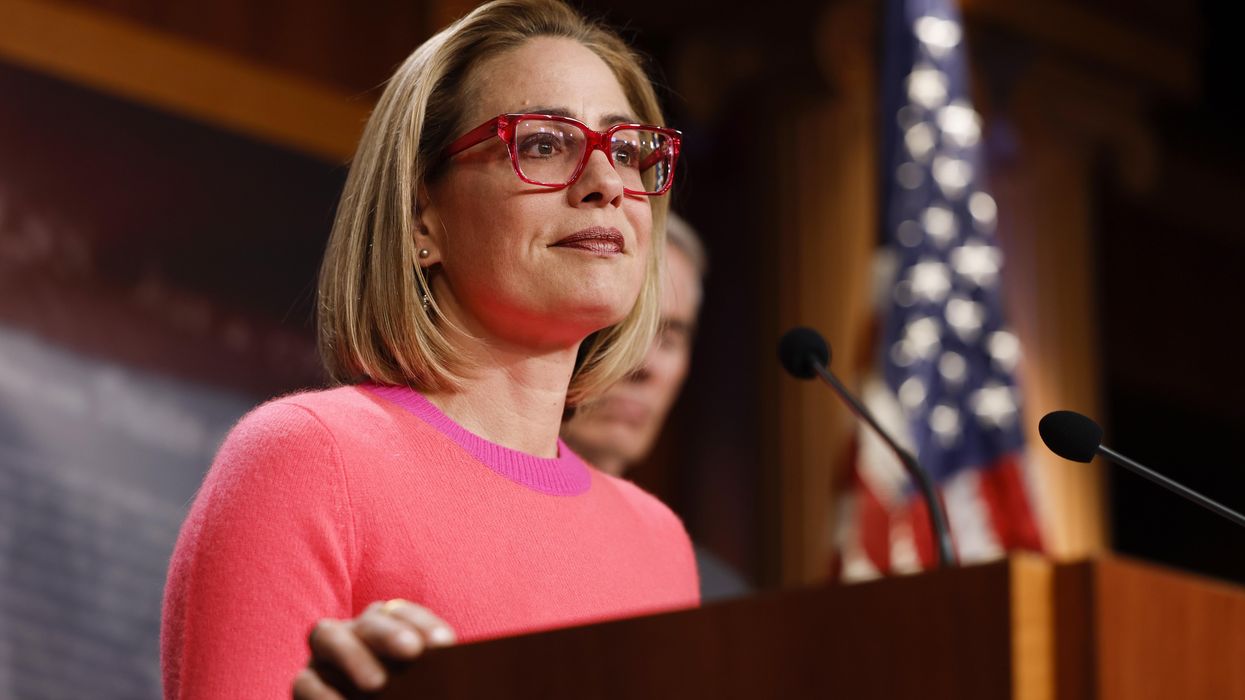Anderson edited "Leveraging: A Political, Economic and Societal Framework" (Springer, 2014), has taught at five universities and ran for the Democratic nomination for a Maryland congressional seat in 2016.
If you held a conference for moderates – inviting federal politicians and citizens – it is unclear who would attend.
In Washington, moderates tend to be House members, senators, the president or vice president, or Cabinet officials who belong to either the Democratic or Republican party. One is therefore a moderate Democrat or a moderate Republican.
But throughout the country, many citizens who regard themselves as moderates do not identify with either political party. Instead, they identify as independents. Gallup reports that in 2023, 43 percent of voters identified as independents, 27 percent as Democrats and 27 percent as Republicans. It also reported that 36 percent of voters say they are moderates, 36 percent say they are conservative, and 25 percent say they are liberal. The group of independents overlaps with the group of moderates.
From the outset, therefore, we have a puzzle: The moderates in Washington are almost always Democrats or Republicans, while the moderate constituents are frequently independents.
A conference of 1,100 moderates therefore might gather together:
- 100 politicians – 15 senators and 85 House members – who regard themselves as moderates, 98 of whom are Democrats or Republicans (there are two independents in the Senate), and
- 1,000 citizens, 200 of whom would call themselves moderates from either the Democratic or Republican parties and 800 of whom would call themselves independents.
We must accept that there is a major gap in the country, because the moderate independents essentially have no representation in the House and just two members of the Senate who speak for citizens who are alienated from the two major political parties.
A second major problem for the moderates at the conference is the lack of definition of “moderate.” Some of the independents will be extremists – libertarians or socialists. But probably close to half of the moderates are going to say that they want the two parties to find a middle ground. And about half are going to say that their concept of being a moderate is about creating policies that reflect an interesting synthesis of what the two parties are advocating. They are ambitious moderates.
There we have it, two big challenges for the conference. First, how to overcome the gap that exists between the politicians who, with the exception of two members of the Senate, are all Democrats and Republicans. Second, how to make sense of the fact that about half of the moderates are low-key, split-the-difference people, while the other half are high-spirited, creative synthesis people.
The chief problem is that the moderates who are independents are frustrated with both political parties and therefore believe that the moderate Democrats and Republicans are part of a broken political system. It is a system marred by gerrymandering, an outsized role for money in politics, closed primaries in most states, and ranked-choice voting in only a handful of congressional districts. Independent moderates therefore feel unrepresented in Washington.
Moreover, the media and political organizations control the meaning of the term “moderate” and cubby hole the ambitious moderates in a way that makes it very difficult if not impossible for them to get their message across if they are politicians, and mobilize like-minded citizens if they are in the body politic.
In House races, for example, gerrymandering makes it very difficult for someone who does not take the party line to win a primary. Journalists will say precisely this during a campaign – emphasizing how moderates do not take a clear stand and have no clear constituency – and thus moderate candidates are running against candidates and the media at the same time.
If the moderates are ambitious rather than straightforward moderates, they will be even harder to explain by the media. They will more likely be called indecisive, wafflers and too out of the box for the electorate.
Political consulting 101 instructs candidates to define their opponents with concepts, words and categories that will disadvantage them at the polls. Our dysfunctional political system has systematically found ways to define moderates in ways that impede their ability to express themselves, mobilize, raise money and win elections. A starting point to address this problem is for everyone to drop the term moderates.




















Trump & Hegseth gave Mark Kelly a huge 2028 gift